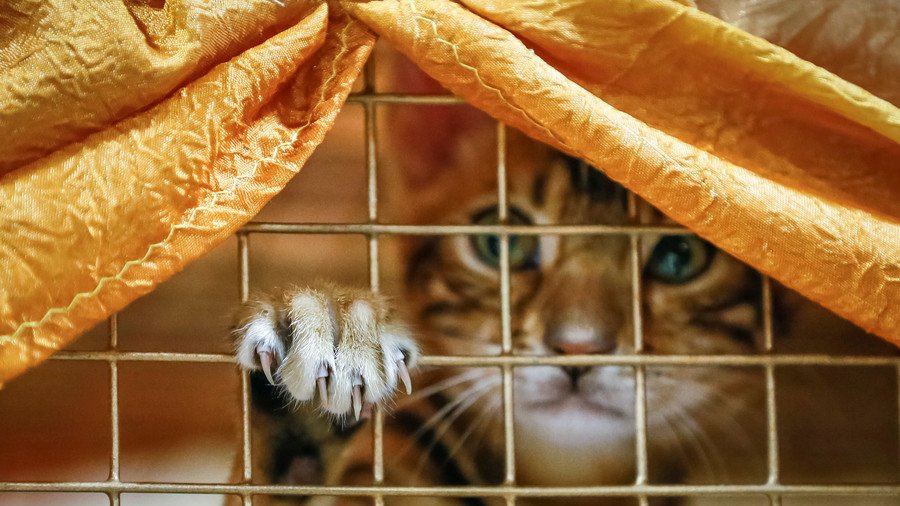USDA lab killing ‘hundreds’ of kittens by ‘incineration’ as part of study - congressman

Hundreds of kittens are bred, fed parasite-infected raw meat and then killed by incineration at a US Department of Agriculture lab in Beltsville, Maryland, according to Rep. Mike Bishop (R-Michigan).
Bishop sent a letter of concern to US Secretary of Agriculture Sonny Perdue about the Maryland lab and called for an investigation into the cruel practices.
Bishop’s letter explained that the kittens are fed toxoplasma-infected meat for two to three weeks. The animals’ feces are collected during that time and harvested for parasites. Most shockingly, the USDA admits that the kittens “usually do not become sick” as a result of eating the meat and are therefore healthy when they are killed.
Me: Hmm, not too bad a day looming, let’s just check the Internet before starting to wor—Internet: USDA KILLS KITTENS IN TOXOPLASMA EXPERIMENTMe: [shuts down the world]
— Maryn McKenna (@marynmck) May 8, 2018
“I’m shocked and disturbed that for decades the USDA—the very organization charged with enforcing animal welfare laws—has been unnecessarily killing hundreds of kittens in expensive and inefficient lab experiments,” Bishop said in a statement.
Bishop said the government research program, which has been funded since the Nixon administration, needs to be “put under the microscope” and that the kittens are essentially used “as disposable test tubes” in harmful tests that “most taxpayers oppose.”
In his letter, Bishop questioned why the kittens were being killed instead of offered for adoption and asked if research had been conducted to find a method of study that was more humane.
Disturbed @USDA has spent decades & countless tax $$ breeding kittens for experiments & then needlessly killing them before they’re 3 months old. I sent a letter to @SecretarySonny seeking more info & urging long-overdue reforms. https://t.co/6DC2L3uqUS
— Mike Bishop (@RepMikeBishop) May 8, 2018














